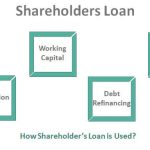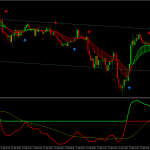When you die, protecting your spouse’s financial security means understanding the annuity product and what it can do for you. There are so many pension products in the UK market, it is important to choose the one that suits your personal situation.
got it. There are three possible outcomes. We will provide details below to help you know where your money will go if you die.
A. So far, you have not received any tax exempt cash or income.
If you are less than 75 years old and do not receive any tax-free total payments or income at the time of death, your pension is generally paid to your beneficiaries with tax-free total payments. If you have received the total payment or income, and died at the age of 75 or above, the beneficiary will receive the total payment even if it pays 55% of the tax. Alternatively, the money could be used to provide regular taxable income to the spouse or beneficiary.
B. You chose an annuity.
Unless you choose to protect your income, if you die, all pensions paid by your income will be interrupted. Once set, it cannot be changed, so it is important to find a suitable annuity product. The purchase of annuity products will provide the following three main types of “death benefits”:
-
The right to live together – continue to import to your spouse. In this case, the spouse continues to receive income after death.
-
The minimum period of guaranteed payment. Even if the person dies during this period, the income can be paid within a guarantee period of at least 10 years.
-
Value Protection – Refund Option. If you die before a certain age (generally 75 years old), the total income paid to you in the annuity is less than the amount used to purchase the annuity, the balance can be paid to the beneficiary, but the tax is 55%.
According to your personal situation, you can select as many or as many of the above options. However, if you do not choose death benefits, you will lose income if you die early, and your spouse will also lose income.
C. Select Revenue Extraction. The income withdrawal can control the investment site of the annuity and withdraw the income with variable taxation. Different from the annuity policy, it is not necessary to choose the death benefit from the beginning when choosing the income withdrawal policy. The flexibility provided by these policies is also the main reason to attract investors. Because although the risk is greater, the investment results are not good, and excessive withdrawals will cause income loss.
When you die, the beneficiary you choose can make the following choices for the remaining funds:
-
They can levy a 55% tax on all other funds.
-
Your beneficiary can continue to accept import withdrawals. This will be subject to normal income tax.
-
If the set criteria are met, beneficiaries can use them flexibly. Any income obtained in this way is subject to personal tax.
-
A lump sum payment can be made to a designated charity. If you have no dependents, the payment is tax exempt. If you have, the payment will be taxed at 55%.









